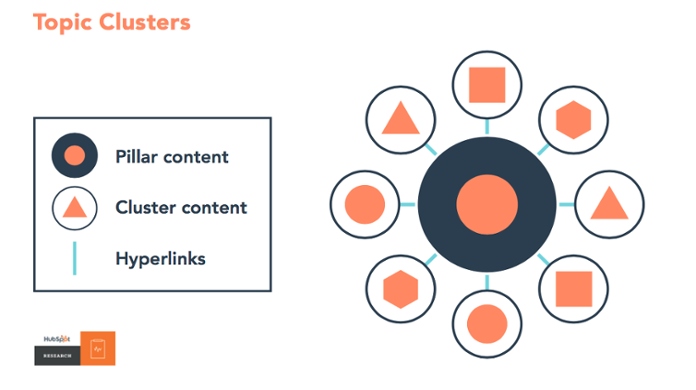How to Optimize for Topics Rather Than Just Keywords
There’s more to optimization than keywords. We have long been told that keyword optimization is – well - key. Modern search engine optimization, however, goes beyond simple keyword
Using keywords is a good way to discover new topics and add depth and value to your posts.
If you focus your digital or content marketing on topics rather than keywords, you’ll get less caught up in what keyword should go where and offer better, more engaging content that is genuinely useful and attracts the right audience.
differentiating Between Topics and Keywords
Keywords are specific words or phrases that are intended to drive traffic to your site. These are the words and phrases that your potential customers will be typing into search engines to find your products or services.
Often, keyword use is repetitive, very specific, and it can lead to inflexible, bland content.
Topics, having a wider scope, can give you more room to play.
Let’s say you own a real estate company. You want to target people looking to sell their house. The keyphrase “sell house” is likely to be important to your marketing efforts.
To optimize for topics, you can expand this keyphrase. Think: “How to Sell Your House by Yourself” or “Selling Your House? Avoid These Common Mistakes.”
When the well starts to run dry, there are plenty of tools you can use to turn your keywords into topics that make it easier for you to create useful, engaging, and meaningful content.
Answerthepublic.com is a great tool for generating ideas based on keywords. This will help you optimize for topics, saving you time and leading you into interesting areas.
Using this resource, you will arrive at this result for “sell house,” leading to such ideas as “When is The Best Time to Sell Your House?” and “Where to Sell My House Online?”
Google is another prime source of topics. It will help you increase the mileage you get from your keyword list.
Asking Google “How to sell your house” will provide both common questions and common searches, similar to your chosen phrase. Using Google’s suggestions is a great way to tap into what your potential customers care about and what they need to know to help them make a decision regarding your products or services.
It is also worth noting that search engines like Google are starting to move toward semantic searches, aiming to answer a user’s question no matter how it is worded. This means your carefully selected keywords are ultimately less relevant than defining a topic and providing related information.
When you have a topic-based strategy in place, you can simplify your website, creating landing pages that revolve around singular topics, then branching out into keywords when appropriate, instead of inadvertently creating a sprawling site with a page for every keyword.
How to Optimize for Topics
1. Structure Your Website
Optimizing for topics does not mean you shouldn’t think about keywords. Keyword research is vital to help plan your approach, and it can inform your topic optimization.
Focus on your website structure, what your site is, and what topic each page is focused on.
A strong framework for your site’s structure impacts SEO positively. The structure of your site needs to make sense to your visitors. When it is logical to end-users, it’s logical to search engines, which improves your rank.
Plan your site’s structure on paper or using a computer, page by page. Here's a general example of a optimized site structure:
Image Source: https://moz.com/learn/seo/internal-link
A site structure doesn’t have to be complicated. Usually, simpler is better. The key is to be sure that each page and each sub-page or category can be defined by one topic, such as your blog categories, information about your company, and contact information. If it doesn’t fit, separate it into another page. The higher on the chain the more general the page while the deeper you go the pages should become more specific.
Another way of thinking about your site structure that allows for topic optimization is using the Topic Clusters model. The concept here is very much the same with a bit more focus on your more broad pages being categorized as pillar content and your more spesific pages as cluster content.
Here's an example of how the topics would become more specific for a real estate agency website as you dug deeper into the topics:
Level: Page Type - Topic
Level 1: Homepage - Real Estate Agency
Level 2: Service Page - Selling a Home
Level 3: Blog Category - Home-Selling Tips
Level 4: Blog Post - When is The Best Time to Sell Your House?
From here you can jump into keyword research, determining what words are best for each page and topic.
Tip: Try doing a mind-map exercise. Example mind-map template.
Not everything has to be a major magnet for search engine traffic. If your contact page is too basic for content marketing, for example, that’s fine, so long as a number of your other pages and topics are robust.
As you have drilled your pages and topics down to simple options, do the same with your keywords. Keep the lists short. Avoid repetition by researching which keyword is the most effective from a handful of similar terms.
2. Define Your Seed Keywords
Optimizing for topics doesn’t mean forgetting about keywords. Quite the opposite. Your keywords inform your topics, so keywords are still very important. You should hone them for each page on your website.
Look at the web structure you’ve outlined and consider which keywords should appear on each page.
You might find that some pages are not ideal for organic search. That’s okay. Not every page is destined to be a key driver for organic search.
Keep your lists short. Creativity is important, but don’t try to come up with the longest list of keywords ever. A long list of keywords can result in you spreading your efforts too thinly.
Turn your keyword list into a shortlist of the best, most useful keywords. If you have extremely similar keywords, choose one. The Moz Keyword Explorer can help with this.
You may also be interested in reading: 10 Best Keyword Research Tools and Their Top Feature
3. Make a Content Outline for Each Page
You’ve got your short lists of keywords for each page. Now to make content that is relevant for each page of your site.
A content outline might look like:
Introduction
Benefits
Features
Conclusion
A solid outline keeps your content consistent and makes sure you hit certain points that provide value for your visitors.
Working like this makes sure that your content is relevant to your visitors. They will not see general content that “kind of” fits your site, but laser-focused content that gives them what they need and expect. You will make content that gets and holds their attention.
“You have to show them you were the correct search result,” explains Chris Hornak, Blog Hands CEO. “When you think about it this is what SEO really is. It’s optimizing Google’s search experience. If you are giving Google’s customers value then they will want to show your website more often.”
See Also: Google patent on related entities and what it means for SEO
4. Write Your Content
Great content is often the result of several disciplines working together. Input will come from leadership, marketing and sales teams, branding, as well as someone with great writing skills. If you’re a one-man or one-woman show, you probably wear all these hats during the business day. If you don’t have some of these skills, outsource to people who do.
With this mix of viewpoints and expertise, you can produce content that is detailed. This is good because longer, more in-depth content tends to do better in search results. One of the reasons for this success is that longer content can include your keywords more times and more naturally than shorter content.
Having said that, don’t try to jam keywords into your content. Start the process with your keywords, but let the outline and your post develop naturally. Don’t let the quality of the article suffer in order to include keywords.
You may consider using tools help you further optimize and editor your content. Check out these 5 Effective Content Analysis Tools.
5. Expanding on Your Core Topics - Diving Deep with Topic-Based Content
If your website doesn’t have a blog yet, now is a great time to add one to your site structure. Your main, fairly static pages are the core of your topics and your search engine traffic, but it’s a blog and other supplemental content that will expand upon this core and keep your site fresh and interactive.
At the same time, your blog will demonstrate your expertise and role as a thought leader in your industry.
Consistency and quality are key with any supplemental content, especially blog posts or articles. Once you start sharing content, you should stick with it, because people will come to expect and desire this information from your company.
Planning your content ahead of time is a good way to ensure that you have something ready to go at all times, keeping that regular schedule and adhering to your topics of interest.
7. Promote Your Content
Equally important is ensuring that you get your content shared with the right people, in the right places. The goal is to drive page views back to your site, and you need to take an active role to achieve this.
“If you really want your content to do well, you can’t wait for Google to start ranking it for high volume keywords,” says Hornak. “You’ll want to get it in front of the right eyeballs as quickly as possible. Promote each blog post on your own channels (social, email, video, etc.) and for additional mileage consider advertising or outreach.”
Need some content promotion channels? Check out How to Get 10 Weeks of Marketing From 1 Blog Post & 15 Ad Platforms for Buying Targeted Blog Traffic
The Bottom Line
When you are setting up your site for the first time, revamping an existing web presence, or working on supplemental content like a blog, remember to take a step back and look at the bigger picture.
Your topics need to inform your keywords, not the other way around. When you can firmly identify what topics your site and your content cover, the rest should fall into place.
That being said, your topics still matter. Your choices will impact your page views and search engine results page rankings.
Choosing topics, therefore, should not be a matter of guesswork, but the result of careful strategizing, research, and planning for immediate and long-term results.
“Too often in the SEO industry there is an overwhelming focus on keywords,” says Chris. “This limits the definition of what it means to be an SEO professional. True SEO is the part of an overall marketing strategy that brings long and short-term results.”
BlogHands can help you with content strategy, from the overarching strategy down to the content that is the beating heart of your site. Connect with us today.





